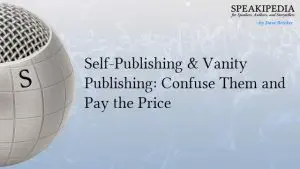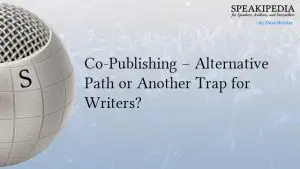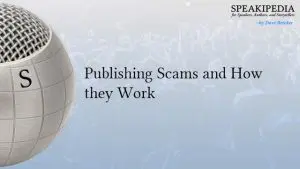 A great technology is getting a bad rap for the wrong reasons. Print On Demand (POD) technology is often mislabeled “Publish On Demand,” which consequently associates it with the Vanity Publishing world; a realm inhabited by a few reputable operators and a large number of scammers waiting to prey on naive writers.
A great technology is getting a bad rap for the wrong reasons. Print On Demand (POD) technology is often mislabeled “Publish On Demand,” which consequently associates it with the Vanity Publishing world; a realm inhabited by a few reputable operators and a large number of scammers waiting to prey on naive writers.
While it’s true most Vanity Publishers do rely on POD technology, the majority of reputable self-publishers and many small traditional publishers do, too. POD is entirely disconnected from matters related to whether you own your own ISBN numbers, share rights and royalties with a third party, own your cover artwork or choose one distribution chain over another. After all the business arrangements are decided on, a file is sent to a POD printer and books are then manufactured to order in quantities as small as a single book. POD is a digital printing technology, not a business strategy or a scam.
If it wasn’t for POD technology, self-publishers would still be stocking up their garages with the thousands of books required to make an offset printing order cost-effective. By combining POD technology with super-efficient distribution to major booksellers, companies like Lightning Source and Amazon’s CreateSpace™ are a self-publisher’s greatest enabler. POD is the technology to which the self-publishing revolution owes its greatest debt of gratitude.
If you’re warned to steer clear of “disreputable POD publishers,” understand that literal adherence to that advice will possibly be your undoing. Instead, whether you engage a Vanity Publisher or take publishing matters entirely into your own hands, evaluate your vendors carefully but separately from your printing processes. Ultimately, a clear understanding of the differences between Vanity Publishers and POD Printing, and proper use of those terms will go a long way towards discouraging unnecessary stigmatization of a useful and valuable book production method.





